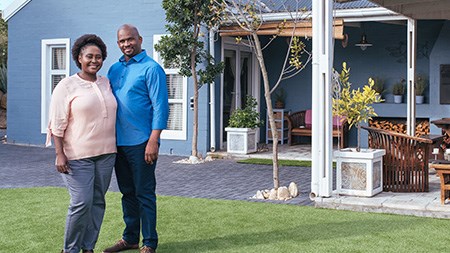Nowadays, it’s not uncommon for aspirant house buyers to apply for 30-year home loans.
Before doing so, however, it would be wise to do the math and consider the long-term financial implications. Generally speaking, consumers tend to opt for 30-year loans because of the lower monthly bond repayments or to be able to purchase a house that is around 10% more expensive than what is afforded to them on a 20-year bond.
For example, if you buy a home for the property value of R1-million, at prime, which is currently at 9.25% on a 20-year loan term, your repayments would be R9 159. If you only pay the minimum installments for the 240-month term, you would have paid back R2.2 million by the end of the loan term.
Under a 30-year loan term option, your repayment will be marginally less at R8 227 per month. However, at the end of the term you would have paid back a total of R2.96-million – R764 000 more than the 20-year bond.
Consider the interest
While buyers may be swayed by the perceived short-term gains, the hefty interest accumulated as a result of the higher comparable outstanding balance and the additional 10 year period should give serious pause for thought.
The following adds another layer of perspective to the matter: After year five on a 20-year home loan you would have paid off 11%, whilst only paying off 4% on the 30-year option. After 10 years, you would have paid off almost 30% of your 20-year home loan, whilst having paid off only about 10% of your 30-year home loan. At the point where you would have paid off your 20-year home loan, you will still owe R640 000: 64% of your 30 year loan.
If you already have a 30-year home loan, don’t despair, you can save yourself the extra interest by paying more into your bond. So says Tommy Nel, Head of Credit at FNB Home Loans.
Pay more in to bring the balance down
“Interest is only ever charged on the outstanding balance of your home loan, whether it is 20 years or 30 years. Therefore, if you can pay more than is contractually required you will bring the total interest down as well as reduce the home loan term.”
Adds Nel: “There is very rarely a circumstance that taking out a 30 year bond for your home will be of financial benefit. Therefore, before you jump at the lower monthly repayment option, look carefully at the long-term financial impact of taking out a home loan for the additional 10 years.”
Given the financial implications generally associated with 30 year loans, FNB does not currently offer this option and would only consider doing so in future if it is able to ensure customers are able to make a thoroughly informed decision.



